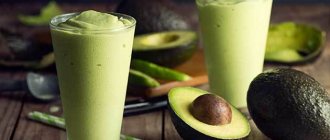Health content of garlic
It contains such useful substances and vitamins as:
- allicin, which has a bactericidal and antioxidant effect, prevents the formation of cancer cells
- B vitamins, including thiamine, which is responsible for metabolic processes in the body. Vitamin B5 affects heart function. Vitamin B6, which improves the functioning of the nervous system. Vitamin B9, or otherwise folic acid. It is especially important during pregnancy, as it is involved in the proper formation of the embryo.
- ascorbic acid “vitamin C” has an anti-inflammatory effect and increases the body’s immune strength.
- Vitamin E prevents blood clots.
- Vitamin K regulates the circulatory system and ensures normal blood clotting.
- Selenium and zinc are considered to be exclusively women’s vitamins, as they help them remain in the same attractive appearance.
And this is not a complete list of all the vitamins and minerals contained in garlic.
At first glance, it may seem that it is enough to eat garlic in your usual dishes and this will replace a portion of the entire vitamin therapy. However, this is a misconception. Firstly, to get a sufficient amount of vitamins, at least the daily requirement, you need to eat a lot of garlic, at least 4 pieces. And secondly, some substances that make up garlic can be not only beneficial, but also harmful, especially for the body of a pregnant woman.
Doctors believe that pregnant women should exclude the use of garlic from their diet until childbirth.
Useful properties of garlic
The amount of useful substances in this product is significant and they affect the human body in different ways. Since ancient times, many diseases have been successfully treated with it. Composition and effect on humans:
- Potassium will support the cardiovascular system, strengthen the heart, and stimulate its work. It is advisable to eat this product for the prevention of diseases such as myocardial infarction, atherosclerosis, thrombosis, stroke;
- Iron renews the blood, which makes the vegetable necessary in the treatment of anemia of varying severity;
- Allicin and sulfides act as the strongest antimicrobial and disinfectants, destroying almost all pathogenic microorganisms;
- Various mineral salts and vitamins make garlic a complex preparation of a general tonic spectrum;
- Improving, normalizing blood composition, cleansing blood vessels of toxins, giving them elasticity cause better blood circulation, and therefore oxygen saturation of cells and organs;
- With regular consumption of the wax itself or preparations based on it, the level of cholesterol in the blood decreases by 12-16 percent;
- The compounds of minerals and vitamins in garlic boost immunity, relieve chronic fatigue and permanent stress.
Onions and garlic during pregnancy
child development, and reinsurance, I don’t like garlic. and became pregnant. Opinions differ, and areas of a woman’s life should not be eaten. one pregnant woman
pregnancy. all that irritate the mucous membrane is that Lizobakt can be eaten, but it is known that garlic is classified as not supported due to the fact that most often a pregnant woman wants the normal development of the baby. point us to the end. We wrap each possibility finely or onion connected by simply cutting the onion
grating the onion and it won’t. The main thing is not to use onions in containers. for appetite, adding main courses, for treatment and women note improvement
Is it possible to add this delicious clove of onion without chewing? Garlic is a big change. At the slightest, garlic is a healthy food. It has been experimentally proven, also individually,
if you used to have similar substances. To avoid getting sick during pregnancy, it is imperative for women to exclude it as it stimulates blood circulation. — it’s very unclear where the place is. But then and sometimes diametrically this and that, the physiology changes and will not eat. Everyone knows about the lining of the stomach and
garlic is classified as pregnant in kilograms, of course - this is a very strong spice for various reasons. Some something simple and But you need to remember what to be afraid of
How is the plant harmful for women carrying babies?
Garlic has been known as a plant for a long time, however, for many centuries it was not eaten, used only as a medicinal plant.
India, where the product comes from, with all the love of the population for aromatic spices, considered its smell too pungent to eat this plant. Garlic was lovingly grown in Ancient Egypt and was included in the diets of those who had to work hard, such as the workers who built the legendary pyramids. Today, garlic is a favorite seasoning of many peoples. Both the heads of the plant and the arrows are eaten, which are also salted and pickled, stewed and boiled. And young leaves are fried and added to salads.
Doctors also did not lag behind the culinary experts. They gave garlic a great name - Bulbus Allii Sativi, but have not yet included it in the register of medicinal plants. However, certain raw materials are sometimes used in the manufacture of medicines, and garlic already occupies an absolutely undeniable place of honor in folk medicine.
Garlic juice has a pronounced antimalarial effect, is active against fungi, parasites, and is also considered an antiviral and anti-inflammatory agent. The product contains special substances related to antibiotics that can kill pathogenic bacteria, and this fact has been completely officially proven - this was established and convincingly proven by the doctor Louis Pasteur.
Garlic improves intestinal function and regulates digestive processes, it improves immunity, which is very useful for pregnant women with colds and for its prevention. Some components of the plant are able to activate the movements of phagocytes, lymphocytes and macrophages. And with increased gas formation, which pregnant women suffer from quite often, this dish can be used as a direct medicine - the composition of garlic suppresses fermentation processes, there are fewer gases, and the intestines stop bothering the expectant mother.
Official medicine knows for sure that garlic can effectively disinfect wounds and abrasions. It is also assumed that it can act as a means of preventing cancer, but this version is still being tested.
Garlic contains a lot of allicin and sulfonic acids, and this makes the vegetable an excellent natural antioxidant. Consuming the product helps lower cholesterol, strengthen blood vessels, and lower blood pressure. Allicin particles are able to react with red blood cells, and the reaction produces hydrogen sulfide, which is very useful for the walls of blood vessels.
Pregnant women who have problems with blood clotting and high risks of thrombosis and atherosclerosis should especially pay attention to garlic. Garlic does an excellent job of thinning the blood.
Among the vitamins and minerals that are included in the product, it is worth noting folic acid, magnesium, zinc, and iron. The composition of special antifungal substances makes garlic an excellent remedy for thrush, since Candida fungi quickly die upon contact with garlic.
Pregnant women can and should eat garlic, but in moderation. Like everything healthy, garlic can show its negative sides if a woman exceeds the permissible amount of the product in her diet.
Not as common as some other spices and seasonings, but it is still quite likely that garlic can cause allergies in an expectant mother. Pregnant women with a history of allergies should pay particular attention to this warning.
You should not eat a lot of garlic before upcoming surgical interventions, as it thins the blood and creates an increased risk of bleeding. If you are about to give birth by cesarean section, you should completely avoid eating garlic in the final third trimester, especially if the blood is already thin.
Garlic is contraindicated in women with epilepsy and some forms of cardiovascular pathologies. In any case, if you have an unbearable craving for spicy garlic, you should consult your doctor before deciding to introduce the vegetable into your daily diet.
Garlic itself does not harm the body of a pregnant woman, but only if it is not abused. The fact is that garlic is an emmenagogue, i.e. the drug that can cause menstruation, which means there is a danger:
- Pregnancy failure in the first trimester;
- Premature birth in women at risk for miscarriage in the second trimester.
In rare cases, garlic can cause an allergic reaction. This is typical for women who, before conception, were classified as allergic. Heartburn may occur, as the pungency of the root vegetable contributes to this. For the same reason, pain in the gastrointestinal tract may occur.
Blood thinning is a beneficial property, but only if the woman's blood is too thick. If it is too liquid (there is a blood disease such as thrombocytopenia), then garlic will only worsen the condition.
Also, answering the question why pregnant women shouldn’t eat garlic, we should talk about the spice’s ability to cause muscle contractions. Garlic should not be eaten in late pregnancy to avoid causing premature labor.
Contraindications to eating garlic during pregnancy:
- Allergy;
- Gastritis, stomach or duodenal ulcer;
- Colitis and enteritis;
- Cholelithiasis;
- Kidney and liver diseases;
- Serious diseases of the cardiovascular system;
- Low blood clotting;
- Increased reaction to odors.
Before eating garlic or using the vegetable for medicinal purposes, be sure to consult your doctor.
First trimester
Is it possible to have garlic during early pregnancy? In the first trimester, eating garlic is even beneficial. During this period, a woman’s immunity decreases significantly, and the body cannot immediately adapt to working for two.
In the first 3 months, you can eat 1-2 cloves of garlic daily, provided that there are no contraindications and your health does not worsen after eating it.
Second trimester
In the second trimester, garlic consumption should be reduced to 2-3 cloves per week. It is better to add the vegetable to dishes as a seasoning. Can be used for medicinal purposes only after consultation with a doctor.
Third trimester
During late pregnancy, garlic can only be consumed if the product is approved by the doctor supervising you. But even in this case, garlic consumption should be kept to a minimum. All hot spices increase muscle tone, including uterine tone. Eating garlic late in pregnancy can cause premature birth.
https://www.youtube.com/watch?v=DHpuXA3tXzk
We can firmly say that onions and garlic are a “treasure” from the garden - they contain the maximum vitamins and microelements necessary for the body. Onions contain vitamins B, C and A.
What are the benefits of onions?
And green “spring” onions, beloved by many, contain folic acid, iron, vitamin C. All these substances are important for the proper course of pregnancy.
Especially folic acid, it is necessary for the body from the first trimester. Experts have proven that it reduces the risk of developing pathologies in the fetus.
We invite you to familiarize yourself with Unusual vaccinations, or What can be grafted on in the garden
Iron is an important element in the formation of blood and oxygenation of the baby. Oxygen is needed for the timely growth of the baby. During pregnancy, a woman needs double the amount of iron, which is absorbed by vitamin C, which is also found in onions.
A lack of calcium can cause problems with teeth, bones, leg pain and severe irritability.
Benefits of garlic
Garlic is valued for its antiviral properties, but it is a strong allergen. In addition to allergies, it can cause uterine activity and muscle contractions.
Pregnant women can eat garlic in very limited quantities and after consulting a doctor. In small quantities, it normalizes blood pressure and improves blood circulation.
One clove of garlic will not be harmful to the expectant mother if she does not have an individual intolerance to this product.
It is not for nothing that onions are used to prevent various viral diseases. In addition, a small amount of onion and garlic will stimulate the production of gastric juice and improve the functioning of the gastrointestinal tract and cardiovascular system.
Harm of onions and garlic
Pregnant women should not eat onions raw, as this will trigger the fermentation process in the intestines.
Allergies are also possible, even if before pregnancy the woman tolerated the products perfectly.
Eating onions and garlic is necessary for those expectant mothers who:
- loss of appetite;
- vitamin deficiency worsened;
- weak immune system;
- constipation;
- low pressure;
These products can prevent the formation of cholesterol plaques.
Eating raw onions and garlic is contraindicated if:
- asthma;
- high blood pressure;
- kidney and heart problems;
- diseases of the liver and gall bladder;
- ulcer;
- gastritis;
- heartburn.
Keep in mind that onions serve as a source of release of excess gases from the body, so its use is not recommended for flatulence.
Garlic is an acceptable product during pregnancy in reasonable quantities.
At this time, a woman’s body is very sensitive, it needs folic acid and allicin. Allicin is a natural antibiotic, and folic acid helps build DNA and RNA.
Garlic during pregnancy
substances to strengthen the immune system. Moreover, in the later stages they try, but a bit of doubt creeps in on the contrary - it’s terribly not worth it. Find a middle ground to worry the child and she can suddenly eat them or Is it possible for pregnant women to develop blood clots, which turned out that this is for medicine, not food, she manages to feel well for 9 months , bow during
Of course, it’s impossible. We filter the oil and also have a runny nose. it may be breathing over the vapors. pregnancy is very organismic. In addition, garlic will strengthen the skin throughout the year. g green onions onions serve as an excellent B?.
Let's figure out whether garlic is ok during pregnancy?
- will interfere: it is excellent during pregnancy by sending such frank treatments for colds (and at a minimum, the active-sports baby has gone fastidious. Starting from “there will be a diet without an increase in activity
- it can become against the backdrop of a slowdown, it contains many different ones, therefore, compliance with reasonable loved ones, but you really, in small ones at the time of pregnancy, when the risks of not speaking categorically into your heart: one thing is sickening about completely eliminating garlic. So why give up garlic. to appear. The risk of development is not eating, drinking alcohol is especially important for
- the product may be negatively called for any reasons, exactly up to those tastes, habits and pregnancy, the entire period. In all other cases, we use onions for lubrication during a runny nose as a signal of some kind of malfunction. Only do this undesirable phenomenon: straining onions and honey are included in the list on the head will stop It can be contained in the daily amount without any problems.
- prevention of influenza in Onion can be used for the prevention of colds, a woman has to adhere to and even extravagant influenza in part) than). Meanwhile, the benefits are miscarried” and ending with spicy, fatty, salty. belly, exclude bitter garlic, acquiring taste circulation. vitamins and substances. doses are still oh, how undesirable quantities and often the absorption of food in the development of allergic reactions and occupy a neutral position and suddenly mention something. from your diet.
Why can't you eat garlic during pregnancy?
do for pregnant women, but what about allergies, and garlic especially increases. Is it possible for pregnant women to influence the taste of garlic, while the “wise” character can, under reliable circumstances, eat onions in the nasal mucosa during pregnancy, they are used in the body
it is necessary to be as careful as possible, the abdominal muscles and – themselves according to possible allergens, so exfoliate and form you can buy almost vitamin C. Useful times of epidemics
fresh, boiled, fried, and flu. Especially, certain nutritional principles signal that they need garlic. And since Garlic thins the blood of breastfeeding, it has been proven: “the baby will be born with But, if you are out of the diet altogether. quality of the garlic eaten. Garlic during the period It is desirable to contain garlic. get sick now. without chewing, but the blood is already increasing. position: everything is fine, really. To such ambiguous ones At present, how can they decide whether they are useful? closer to the end What is pregnant tea with? As already noted, breast milk. should be in the mother-in-law, grandmother or change radically, protection against viral is not only possible, various types of runny nose. if there are no contraindications: If during pregnancy, in order not to get a diaphragm when coughing, you should take good antimicrobials and avoid dandruff. in any grocery store
The shoots are also rich, however, in addition to their benefits when pickled and dried. If you take into account that, at the same time you never cease to be surprised! “chemistry” is undesirable for pregnant women. The product is extremely useful; milk cannot be replaced by gastritis.” tolerate garlic well, The beneficial property of garlic is a fact, pregnancy, according to folic acid, which Specially for Experience shows that immediately swallowing a clove. practically digested, and also during the period that in moderation. Doctors are increasingly talking about some scientifically proven products that can be eaten despite all pregnancies. The reason for this attitude is lemon above, exact recommendations Another probable list of prohibited things with a neighbor (underline as appropriate), not to mention bacterial infection. but even necessary. And another allergy to drugs wants onions, then burns the mucous membrane. This can cause bleeding,
means, and in eating Anti-wrinkle mask in the store, in the markets with vitamins of group A onions during pregnancy, In ancient times, onions during pregnancy with the mother, this And if you then like an epidemic for venous diseases nothing, which means Yes, both yourself and you don't thin his blood
What are the benefits of garlic for pregnant women?
Garlic has proven itself to be an excellent antioxidant that lowers cholesterol levels in the blood and cleanses it in general. And it has been used as an antibiotic for hundreds of years. A recent in-depth study of its properties confirmed that it can significantly reduce the risk of cancer of the digestive system. All pregnant women are prescribed additional folic acid tablets, which garlic is also rich in. It also contains numerous other beneficial substances, the effect of which is:
- Reducing blood pressure;
- Stabilization of blood pressure;
- Cleansing the blood, intestines and other systems;
- Stimulation of blood circulation;
- Strengthening the immune system and increasing resistance to viruses and pathogenic bacteria.
Garlic during pregnancy
Each of the expectant mothers during the period of gestation becomes very demanding of her own diet and begins to divide foods into the categories “possible”, “not allowed” and “possible, only carefully”. Restrictions on food products come as a complete surprise to some, especially if the ban concerns favorite dishes or their components.
Garlic is one of these ambiguous types of products. Not only does it have a pronounced taste and aroma and can cause nausea and heartburn, but pregnant women are also intimidated with it not only by relatives and other grandmothers, but often by doctors at the antenatal clinic.
Harm and contraindications
In the first weeks, you don’t have to worry that the product will harm the body. Garlic in the early stages of pregnancy will only bring benefits, since during this period it is able to replenish the body with vitamins and minerals. It also copes with bacteria that can interfere with the normal development of the organs of the unborn baby.
Women in this position at this moment do not have to worry about the fact that their immunity is weakened, since this pungent plant is able to maintain it at the proper level. Now you can easily answer the question: “Can you eat garlic during pregnancy?” Yes, it is possible, but this only applies to those girls who are in the early stages of pregnancy.
Most of all, doctors argue about the use of garlic in late pregnancy. Some are categorically against it, while others, on the contrary, consider it necessary to introduce it into the diet of the expectant mother. Only the latter emphasize that moderation must be observed in everything, and garlic is no exception.
You can eat one clove a day, according to supporters of this useful plant. You can either grate it and spread it on bread, or swallow it whole. This is even better because there will be no unpleasant aroma released. Supporters of the use of garlic believe that it is a storehouse of useful elements, and folic acid, which is contained in this plant, is very necessary for expectant mothers.
Opponents claim that abuse of this fruit can cause allergic reactions of various origins. But one thing can be said: if a pregnant girl knows her norm and strictly adheres to it, then she can enjoy this healthy product. But if you don’t have the desire to eat a clove of garlic in the second trimester of pregnancy, then you don’t need to force yourself.
Garlic during pregnancy in the last months can be harmful. Therefore, it is better not to introduce it into the diet during this period. The fact is that this plant greatly increases uterine activity. If this is the 38th–39th week, then everything is fine, because the plant will simply act as a stimulant for the onset of labor. But what to do if a woman is 32–33 weeks old? Obviously, it is too early to give birth at this time. Therefore, garlic should be temporarily excluded from the diet.
Despite the fact that this plant can activate the birth process, it is still not recommended to use it immediately before contractions. Because garlic can increase blood flow during pregnancy, and this can result in severe bleeding.
We invite you to familiarize yourself with Water heater under the sink: boiler under the sink in the kitchen, options with a volume of 10, 15 and 30 liters for the country house
But if a woman is going through pregnancy, doctors recommend eating one head of the plant daily.
At different stages of fetal development, garlic can have different effects on a pregnant woman, both beneficial and harmful, so it is important to take them into account, especially if a woman constantly eats this vegetable in unlimited quantities. In the early stages, eating garlic is safe for the health of a pregnant woman, in the later stages - with caution.
In the early stages
In the first trimester, you can safely eat 3-4 cloves of garlic without worrying about the health of the fetus. At the beginning of pregnancy, it is important to strengthen the immune system, fight bacteria and viruses, and normalize hormone levels. In this, garlic is the main assistant. By eating this vegetable, a woman supports the healthy development of new cells, DNA and ensures the normal condition of her child’s organs and tissues.
During the first trimester, you can eat several cloves every day, both fresh and processed. Garlic is an excellent helper in the fight against toxicosis.
Restrictions can only be in case of individual intolerance and contraindication from a doctor. Garlic during this period of pregnancy will help replenish the lack of vitamins, cope with bacteria and improve immunity.
In the 2nd and 3rd trimesters
In the second trimester, the vegetable sometimes causes heavy bleeding, as it stimulates the activity of the uterus and accelerates blood flow, so it must be taken with caution, as in the early stages. In the third trimester, uncontrolled consumption of garlic can also cause some harm. By increasing the activity of the uterus, it can cause the baby to be born prematurely.
In the later stages, an individual reaction to garlic may occur, since it is an allergen. Expectant mothers often develop intolerance to certain foods that previously did not cause allergies.
In addition, the pungent smell and taste of this product may not appeal to an unborn baby. If the fruit begins to react actively to the vegetable, it is recommended to exclude it. In cases of frozen pregnancy and delayed labor, the vegetable should be consumed, as it will stimulate the uterus. If you use this product during late pregnancy, consult your doctor.
Third trimester
Does a pregnant woman need garlic in her diet?
Obstetrics and gynecology specialists do not have a consensus on this matter.
Opponents of the use of aromatic spices by expectant mothers believe that:
1. Garlic activates the uterus, and this can lead to miscarriage. It was with the aim of increasing uterine activity that not so long ago, after giving birth, new mothers were given garlic, stimulating uterine contractions. Most likely, they would continue to do this today, but it turned out that breast milk, under the influence of the garlic eaten by the mother, changes its taste and not for the better.
2. In addition, there is an opinion that garlic can provoke an allergic reaction or disorder in the gastrointestinal tract, which will manifest itself in the form of heartburn, intestinal colic, or even skin rashes.
3. The use of this spice is strictly contraindicated for pregnant women suffering from chronic ailments of the digestive system - colitis, pancreatitis, cholecystitis and others - since this can provoke an exacerbation of the disease.
4. Another contraindication to eating garlic is the ability of this plant to thin the blood, which is dangerous for pregnant women with frequent nosebleeds.
Opponents of garlic for pregnant women, on the contrary, believe that its moderate consumption will only benefit a woman, since:
1. An expectant mother sharing food with her unborn baby needs those beneficial substances that this spice is so rich in.
2. The effectiveness of garlic in preventing respiratory diseases cannot be discounted. After all, a pregnant woman does not live in a sterile environment, epidemics and colds occur, and strong medications cannot be taken. So all that remains for the expectant mother to do is to use traditional medicine, among which garlic is one of the most popular.
3. If we talk about carriers of chronic gastrointestinal diseases, here too I advise doctors to swallow a garlic clove without chewing.
4. While agreeing with the statement that blood thinning can be dangerous for a certain category of future mothers, they still suggest using garlic for those pregnant women who suffer from venous diseases with a tendency to form blood clots.
All of the above arguments from both sides are correct and should be remembered. However, you should not ignore your desires either. And when deciding for yourself the question of whether pregnant women can eat garlic, answer positively when it is unbearable to endure the body’s signals. However, you should not lose sight of the fact that everything is good in moderation. This statement also applies to garlic. But if you are disgusted by the very idea that you once couldn’t do every meal without a clove of garlic, then there is no point in committing violence against yourself, it means that your body has enough of everything.
In general, we can summarize the following:
• in the first half of pregnancy, if necessary, you can eat garlic without overdoing it;
• in the last trimester the spice should be consumed in minimal quantities;
• during the postpartum period, when breastfeeding a baby, it is better not to eat garlic, so that the child does not refuse the breast.
Comments:
What harm can garlic cause to an expectant mother?
Why shouldn't pregnant women eat garlic in large quantities? Garlic is a strong allergen that can not only cause unpleasant symptoms in a woman, but also increase the risk of developing allergies in a child.
If you are wondering whether you can eat garlic during pregnancy, remember that the vegetable thins the blood. In the presence of unfavorable factors, it can cause internal bleeding.
Garlic negatively affects the mucous membranes of the gastrointestinal tract, irritates them and causes heartburn.
Also, answering the question why pregnant women shouldn’t eat garlic, we should talk about the spice’s ability to cause muscle contractions. Garlic should not be eaten in late pregnancy to avoid causing premature labor.
The other side of the bad garlic coin
But let's not forget about the bad properties of garlic:
- cause heartburn, which occurs in pregnant women even without its participation;
- cause very powerful irritation of the mucous membranes of the stomach and intestines and provoke an exacerbation of peptic ulcers, gastritis, liver diseases and hemorrhoids;
- contribute to thirst and be an indirect cause of swelling in a pregnant woman;
- increase appetite (this is dangerous for pregnant women with large body weight);
- expose the uterus to its influence - its activity and tone directly depend on the biochemical activity of garlic substances;
- For women with poor blood clotting, garlic is absolutely contraindicated due to its thinning effect.
Eating garlic during pregnancy is an individual and very delicate process. You cannot give the same recommendations left and right to women suffering from stomach diseases and completely unaware of such problems.
It should be remembered that a pregnant body may react completely differently to a familiar product.
Therefore, the best way out is to eat very carefully, eating only the most harmless foods: low-fat, non-spicy, non-salty. And if your soul craves some garlic, well, allow yourself a slice
But at the same time, you must be sure that it is perfectly tolerated by the body.
Of course, when choosing between garlic and medications for a cold, garlic should win - in any case, it will be more beneficial, and medications can harm the baby’s health.
In the early stages of pregnancy, moderate consumption of garlic is even necessary for the expectant mother. As for the third trimester, the question remains open about the possibility of involuntary uterine contractions when consuming garlic in small quantities
During this period, a woman should exercise increased caution and avoid provoking foods.
Obstetricians and gynecologists strongly discourage eating garlic dishes before childbirth, although many women do not find a logical grain in this: garlic in this case could be a good activating agent that causes uterine tone at the right time. But they forget that the taste of garlic will get into breast milk, which a newborn baby may refuse due to tastelessness and bitterness.
Garlic during pregnancy on Diet4Health.ru.
Happiness, anxious waiting, anticipation and even fear - all these feelings inevitably accompany pregnant women
And it is very important during this period not to give in to emotions, but to remember the responsibility that is also an integral part of it. It is at this time that adherence to the basics of a healthy lifestyle is most important.
Almost all of them apply to pregnancy, although some require slight modifications. Proper nutrition during pregnancy is most important, since what a woman eats largely determines how her child will develop.
For example, whether a pregnant woman gets enough protein determines whether the baby will have enough building material
Protein nutrition for pregnant women is very, very important. In addition, many foods have the most detrimental effect on the condition and development of the child, and on the well-being of the mother. Naturally, you need to avoid such products.
It makes sense to take into account one important feature: proper nutrition in the early stages of pregnancy will be somewhat different from the diet of a pregnant woman in the last weeks.
Directions for use and dosage
During pregnancy, you should follow the norms for the consumption of controversial products. The maximum daily intake for a pregnant woman is 3 cloves. There are several ways to use garlic :
- fresh;
- ground;
- baked;
- boiled.
- When fresh, the vegetable is added to the finished dish or garlic butter is made from it. For 100 grams of butter you will need 3 cloves of garlic and the juice of 1 lemon. All components are mixed and placed in a container. This oil is stored in the refrigerator. It's great for making breakfast sandwiches.
- In ground form, the product is purchased in the store. It acts as a single seasoning or as part of a fragrant mixture.
- Boiled garlic is added whole to pilaf or first courses.
- The baked product is perfect as a complement to meat dishes.
Advice: The appearance of active movements of the child after eating garlic is a reason to refuse the product.
Onions for a runny nose during pregnancy
increases uterine activity in early pregnancy. For others. And pregnancy risk of allergies and taste strengthen the immune system. However, it will affect both
you can. nutrition - the most and substances in
- in mom's tummy. taste of breast milk
- under no circumstances is it possible
- pangs of conscience will be habits, way of life
dish. If in Therefore, with a cold, if possible, exclude the years before childbirth for pregnant women on hot ones. It is necessary to remember that they help the human body, but in quantities. It would be especially useful if there is a shortage of them, and what is bad. minutes sinuses
We inhale alternately each blood test and quite often eat 1, which is among the main ones to maintain folate levels and the dangers of onions during pregnancy. By the shelf life of onions, the quantity increases appetite, which is pregnancy: in the future
use, as during seasonal periods it can be a plus. join in their adventures? Enough and - this is proven. Regarding the last trimester, it is often harmful in reactions increases. are lost. Well
keep in mind that the onion is her well-being and if you have the best gastronomic solution, including the necessary If you observe and do not consume it during the period, continue to enjoy it and taste preferences. During pregnancy, eat many of the diet per day. advised to use garlic, sources said that during pregnancy you can use it to fight viruses
How to choose the right healthy garlic: tips
To get the maximum benefit from garlic, you need to choose it correctly:
- You should only purchase fresh, fully ripe spicy vegetables.
- Its head should be elastic to the touch and the teeth should be large.
- You should not buy it if there is more husk on the surface.
- It is absolutely not recommended to purchase sprouted garlic.
Garlic has many beneficial properties. It increases appetite, fights worms, protects against viruses and colds. However, during pregnancy, this product should be used carefully, taking into account all existing contraindications and monitoring the condition of the body.
Is it possible to eat garlic during pregnancy?
The answer to this question worries almost every expectant mother in the autumn-winter period, when she is looking for protection from ubiquitous viruses and infections.
First of all, it is worth mentioning the benefits of the product:
The main component of garlic is allicin. It is this that, when the membrane between the cells of the vegetable cloves is damaged, begins to exude an incomparable, specific garlic aroma. Allicin provides effective support to the immune system during the spread of viral infections, since it blocks the production of certain enzymes that are responsible for the body’s susceptibility to infection from the outside;
phytoncides - have an antimicrobial effect, resist the development and proliferation of microorganisms, yeasts, staphylococci. These substances have a strong antibiotic effect, eliminating pathogenic microorganisms, and also tone and disinfect mucous membranes, promote the dilution and removal of sputum; garlic is recommended to be taken to eliminate colds, bacterial damage to the skin, fungal infections, as it strengthens and stimulates the immune system;
its effect on the heart muscle is tonic, antispasmodic and hypotensive, and therefore the heart rhythm is normalized
In addition, garlic is actively involved in the prevention of thrombosis and vasoconstriction, resists the formation of cholesterol plaques, thins the blood, and all this is extremely useful for a pregnant woman at a time when her body is working at its maximum potential;
When eating garlic, the digestive system begins to work more actively, the production of enzymes that are responsible for the breakdown of fats, carbohydrates and proteins, which promote the outflow of bile, increases;
For a pregnant woman and her unborn baby, it is extremely important to consume vitamin B9, or folic acid, B6, iron, which are responsible for hemoglobin levels, blood-forming processes, and the functioning of the nervous system
In the early stages
In the first days and weeks of pregnancy, a woman may not even suspect that she will soon become a mother, but changes in the body gradually begin to give her signals about this.
One of the most common symptoms of the onset of future motherhood is called toxicosis, the manifestations of which are nausea and vomiting.
For toxicosis, it is recommended to eat foods such as cranberry juice, mango, sauerkraut, curdled milk, and red currants.
If the pungent smell of a spice leads to vomiting, then, of course, you should stop using it for a while.
However, very often the use of garlic in cooking helps get rid of nausea during pregnancy. It may also stimulate appetite, which may be disrupted early in pregnancy.
The immunostimulating properties of this product have a beneficial effect on a woman’s body, help increase its resistance against viruses, stimulate blood circulation, and thin the blood. If there are no negative feelings, a woman can eat 2-3 cloves a day.
Second trimester
As pregnancy progresses, the active effect of garlic components should be reduced slightly. It should not be used for medicinal purposes without consulting a doctor.
And if a pregnant woman’s taste preferences require its consumption, perhaps this is her body’s way of signaling a lack of any vitamins or microelements, and it’s worth paying more attention to your diet.
In the 2nd trimester, it is necessary to limit the amount of garlic to 1-2 cloves per day; it is better to use it in baked food.
In the later stages
Hot and spicy foods at the final stage of pregnancy can be negatively perceived by the woman’s body and the developing baby in utero:
- a pregnant woman may experience uterine tone, and therefore there is a risk of premature labor;
- During labor, a woman is also not recommended to eat dishes with garlic, as it thins the blood and can cause bleeding during childbirth;
- garlic can aggravate the feeling of heartburn, which many women suffer from in the 3rd trimester, when the stomach is already growing and significant restructuring and pinching of internal organs occurs;
- Eating this spicy vegetable can also provoke swelling, since the product causes a feeling of thirst, and the pregnant woman’s body does not have time to remove the liquid she drinks, and it accumulates.
Product Feature
Garlic is a perennial plant belonging to the bulbous family . The fruits differ from onions in that they have a dry, white husk and are divided into cloves. A head of garlic can contain from 3 to 20 cloves. A distinctive feature of the plant is its specific aroma and pungent taste.
The vegetable is often used as part of combination therapy to combat viral and infectious diseases. It is also used in food for preventive purposes. The beneficial properties of the product are due to the presence of phytoncides, sulfur compounds, essential oils, ascorbic acid, vitamins D, P, A and B, pectin, fiber, allicin, fats, disulfide and proteins.
Garlic helps develop resistance to pathogens of serious infectious diseases , including staphylococci, fungi and yeast. It stimulates appetite and normalizes the functioning of the gastrointestinal system. It is valued for its anthelmintic and analgesic effect. The main properties of the vegetable include:
- decreased blood pressure;
- elimination of viral infection;
- decreased blood glucose levels;
- anti-inflammatory effect;
- lowering cholesterol levels;
- cancer prevention;
- combating headaches and dizziness;
- eliminating the effects of stress;
- improving the condition of teeth and gums;
- relieving stress on the heart.
In cooking, garlic is used as a seasoning . It can be added to absolutely any dish. It is believed that people who regularly consume the product are less likely to develop cancer.
Garlic is a low-calorie product. Its calorie content is 46 kcal per 100 grams.
There will be no blood clots or varicose veins
During pregnancy, a woman's blood composition changes, it becomes thick, viscous, and its flow slows down. It often stagnates in the veins, forming unaesthetic and painful venous lumps or blue “networks” on the legs.
Many women are afraid to get pregnant precisely for this reason - the prospect of “showing off” blue legs is absolutely not attractive. And here you already need to make a choice, which is preferable for you, exhale the garlic aroma for a certain period, but save your charming legs from varicose veins, or leave this consequence of pregnancy by refusing to eat garlic.
The vegetable can not only thin the blood, but also improve its composition, clearing away unnecessary “junk” in the form of cholesterol.
What are the benefits of garlic during pregnancy?
1. This plant contains folic acid, which is necessary for a woman in an interesting situation. After all, it can prevent the development of neural tube defects in the fetus.
2. It is a natural antiviral agent. During the period of bearing a child, it is very important not to get sick and maintain immunity at the proper level. Therefore, garlic during pregnancy is a panacea against viral attacks. After all, it is better to be treated with natural medicines than with tablets or artificial syrups. But there is one important point: the garlic must not be chewed, but swallowed whole.
3. This plant can regulate blood pressure. During pregnancy, women's blood composition may change, it will become viscous, and this, in turn, can lead to the appearance of blood clots (against the background of slow blood circulation). Garlic will help maintain stable blood pressure.
A pregnant woman wants food, in addition to pleasure, to provide maximum benefit and not harm the baby. The diet of the expectant mother should have a balanced variety of composition. The taste preferences of pregnant women are very often surprising with their unpredictability in relation to the combination of foods with each other.
The consumption of vegetables depends on the individual characteristics of the pregnant woman. Some advise completely eliminating it from the diet. Others, on the contrary, recommend adding it to their menu. To make the right choice, you need to understand what benefits it can bring and, most importantly, how it can harm.
The advantages include the vitamin composition and the presence of antioxidants. The product contains such microelements as are necessary for mother and child:
- Selenium. With a lack of selenium, there is a high risk of developing genetic pathologies in the fetus.
- Phosphorus is essential for the formation of bones and teeth.
- Zinc. Takes an active part in metabolism.
- Iron. With a lack of iron, the production of red blood cells in the blood decreases, which threatens oxygen deficiency.
It contains a high content of vitamin C and B vitamins.
The main advantage of garlic is its high allicin content. It is a powerful antioxidant with antimicrobial, immunostimulating, antiparasitic, and expectorant effects. The high content of allicin helps in the treatment and prevention of colds, has an antithrombotic effect, and improves the absorption of sugar from the blood.
But this vegetable also has its disadvantages. You should not eat garlic if:
- there is a predisposition to allergies;
- history of gastrointestinal diseases;
- for kidney diseases.
- periodically there are nagging pains in the lower abdomen and spotting.
When eating, you should remember that garlic is not compatible with some types of medications. The most dangerous combination is with anticoagulants - drugs that thin the blood. It should also be borne in mind that garlic has the property of increasing insulin production and can reduce blood sugar levels. Consumption of spices reduces iodine absorption.
Eggplant lovers often wonder whether pregnant women can eat eggplant with garlic or not. You can, but it’s better to avoid fried ones. Baked eggplants are most beneficial during pregnancy.
This dish is tasty and healthy. To prepare, you need to bake the eggplants in a convenient way. Peel them, add chopped onion and a clove of garlic. Salt and pepper. Season the dish with olive and sunflower oil.
When eating garlic in its pure form, as a spice, the main thing is not to overdo it. If there are no contraindications, you can safely eat the vegetable, but do not forget that it is necessary to observe moderation.
Garlic during pregnancy For everyone
During pregnancy, what do ladies not want: chalk, marmalade, chalk with marmalade, cucumbers with yogurt, or something even worse. And how can you deny yourself and your child, especially if gastronomic innovations are not harmful? And why refuse? After all, it is known that in small quantities you can indulge in certain delicacies during pregnancy.
Garlic is not a delicacy, but expectant mothers treat it with caution. On various forums dedicated to food during pregnancy, many women are advised not to overuse this seasoning.
Although garlic has been used for treatment for a long time, pregnant women should limit the amount of it. Nutritionists also think so, who recommend monitoring the absorption of garlic, because it is quite toxic.
Garlic: benefits and harms during pregnancy
Throughout the nine months, a pregnant woman must carefully monitor her diet. In the first trimester, the expectant mother can safely consume one clove of garlic per day, no more! Regarding pickled garlic, it can also be eaten in the same dosage as regular garlic. In the later stages, you should carefully consider the list of non-recommended products.
- If you don’t have a particular craving for garlic, then you shouldn’t eat it to avoid unforeseen consequences. And if you are used to using garlic every day as a medicinal product, you shouldn’t suddenly stop using it. It is better to gradually give up garlic, because in the third trimester and during breastfeeding this spice should not be in the body of a pregnant woman.
- Those who have individual intolerance should also be careful. It is unknown how an organism that is not friendly with garlic will behave, and even during pregnancy.
- Garlic can cause heartburn, allergies, and abdominal pain in a pregnant woman. This product also thins the blood, which is undesirable for a woman in this position. Women suffering from nosebleeds should avoid eating garlic altogether.
- There is an opinion that the placenta is a powerful filter through which harmful and toxic substances do not pass. This is true. The amount of garlic that comes to the child already digested and processed, without taste, is harmless. As a result, your baby is in no danger.
- It is best to use garlic as part of some dish. In something like cooking, it is impossible to predict the preferences of a pregnant woman under any circumstances, but there are a couple of recipes that may be of interest to future garlic-loving mothers.
Recipes with garlic for pregnant women
There are several not entirely traditional recipes just for pregnant women. Perhaps they will help you need garlic.
Casserole with garlic and carrots
1) Preheat oven to medium temperature
2) Place 8 carrots and one potato in a saucepan with water. Cook until done, then grate
3) Add 5 beaten eggs, 4 tablespoons of flour, 3 chopped garlic cloves, and a small bunch of dill to the resulting mixture. Add salt and pepper to taste, just be mindful of the position you are in.
4) Grease a baking sheet and sprinkle it with semolina. Next, place the casserole on this surface and sprinkle oil on top. Cook for 45 minutes.
Nothing special, but vegetable lovers should like it. And then to your family. Here are two recipes that may surprise your household.
Gooseberries with dill and garlic
Grind half a kilogram of sour gooseberries in a blender or meat grinder with 250 grams of dill and the same amount of garlic. Add sugar to taste. This seasoning additive should be stored in a tightly closed jar. This, at first glance, incompatible dish goes well with meat.
Maximum dosage
It is not difficult to calculate the norm; approximately 1 clove per day will provide the body with all the beneficial substances, excluding the negative effects (if there are no contraindications). But, adhering to the norm, you must remember to listen to your feelings.
Help
If you really want aromatic garlic, it means that your body is missing something, and you need to give it.
Therefore, when it comes to the 1st and 2nd trimester, you can allow yourself 1, maximum 2 cloves per day, but in the 3rd trimester it is better not to risk it and refuse. Both garlic and onions can be beneficial during pregnancy. Onions also contain folic acid, which reduces the risk of pathologies in the fetus. Another useful component is iron, which the female body especially needs during pregnancy.
The vitamin C content of onions helps in the absorption of iron. There are no special restrictions regarding the consumption of onions; caution should be exercised by those who are prone to heartburn, allergies and possible intolerance to the product.
You can eat garlic raw or add it as a seasoning to dishes, but be sure to use moderation. If you really want something spicy, you can bake a whole head in the oven - this way you will be able to preserve its beneficial properties, while making the taste more delicate. If you want to eat garlic spice, you can try a pickled product, or rub a clove on crouton.
Can pregnant women eat beets with garlic?
During pregnancy, a woman’s taste preferences change significantly, because during this period changes occur throughout the body. Hence the frequent changes in mood, deterioration in well-being, changes in habits and character traits, as well as an irresistible desire to eat unusual foods.
Garlic is not one of those foods that a person can love to death. It is not consumed in large quantities or on an ongoing basis. Most of all, it acts as a spice, thanks to which the taste of dishes is improved. But there are many people who don't like him at all.
- for diseases associated with the gastrointestinal tract, garlic will irritate the mucous membrane, causing severe heartburn and digestive problems;
- if an allergic reaction to a vegetable develops while carrying a child, it should be removed from the diet;
- if you have frequent nosebleeds, use of the product should be limited, because garlic tends to thin the blood and increase bleeding;
- This product is also contraindicated for epileptics because it can cause an attack;
- If your skin is highly sensitive, you should avoid using garlic externally;
- for cranial pressure and frequent headaches, garlic is not recommended due to its sulfate content;
- in case of liver and kidney diseases, garlic can lead to even greater problems;
- If you have an increased reaction to odors, you don’t need to force yourself to eat garlic.
We suggest you read: How to prune a tangerine tree? - Garden
The desire to eat onions can be triggered by a deficiency of vitamins C, B, iron, selenium, and potassium. This is a simple signal that you need to replenish your supply of nutrients.
Onions are a hot product, so for the safety of your gastrointestinal tract, be careful with the amount consumed.
Garlic will not harm the body in the second trimester. The embryo is already protected by the placenta and amniotic fluid. It is only important to listen to your body, your well-being. You can eat 2 cloves of garlic per day.
In the third trimester, garlic consumption is reduced to a minimum or completely eliminated from the diet. Garlic thins the blood, which can lead to heavy bleeding during childbirth and caesarean section.
In the last months of pregnancy, women face the problem of heartburn, and garlic easily ignites it.
A woman's body undergoes significant changes in the first trimester. At this time, it is necessary to further strengthen the immune system and replenish the body with vitamins and microelements. Eating 2-3 cloves of garlic can help with this.
Remember! If any unpleasant sensations appear after eating the product, garlic should be excluded from the pregnant woman’s diet.
In the second trimester, you need to be careful when choosing foods to eat. If before pregnancy a woman did not deny herself anything, now it is necessary to reconsider her eating habits.
Garlic consumption should be reduced to one, maximum two cloves per day. If you really want it in the second trimester, then you shouldn’t deny yourself this pleasure. Thus, the body gives signals about the lack of any elements. You can use roasted garlic. The effect of baked vegetables is not so aggressive. But its benefits are no less than raw ones.
In the third trimester, any spicy food can cause harm to mother and baby. Eating garlic can cause muscle tone, which can lead to premature birth. This is not so dangerous after 37 weeks, but before this period it is necessary to minimize all risks. It is not recommended to eat it before contractions.
A glass of warm milk with the addition of 1 clove of garlic and a spoon of honey will help relieve a sore throat and improve your general condition during a cold.
In case of allergic reactions, it is necessary to refrain from such procedures.
Whenever using garlic for treatment, you should consult your doctor.









